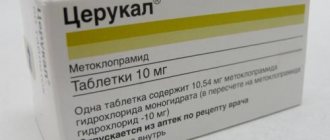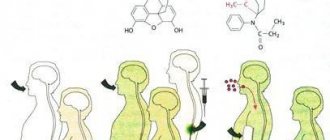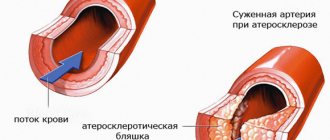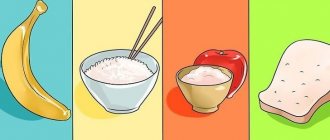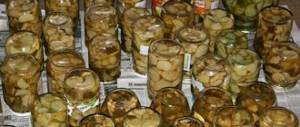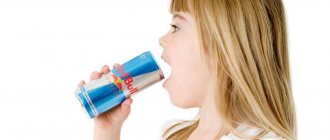It is not for nothing that an attack of vomiting in a child causes concern among parents, because its consequences can be quite serious. Considering the fact that antiemetic drugs for children can only be used after consultation with a doctor, you need to know how to provide first aid to a baby without using them. Yes, and rehabilitation therapy implies certain specifics. Only if you take into account all the factors affecting the baby, can you count on his rapid recovery without complications or side effects.
At the same time, we must not forget that vomiting is a natural reaction of the body in response to certain factors. Before using even the safest remedy, it is necessary to establish the cause of the condition, otherwise the situation can only become more complicated.
First aid
If a child begins to vomit repeatedly, then it should be considered as a symptom accompanying poisoning. In this case, mothers need to perform gastric lavage using salted water for this purpose. Children should be allowed to drink as much liquid as they can, after which gentle pressure should be applied to the root of the tongue with your fingers. Such actions will provoke a gag reflex, and all the contents of the stomach will come out. The procedure must be carried out until clear water begins to come out. Only after this can a child's antiemetic be given.
It is worth noting that children can only rinse their stomachs on their own from the age of three. For children under this age, all manipulations should be performed in a hospital setting, under the supervision of specialists.
Briefly about how to help a child with vomiting
In case of one-time vomiting or relatively simple clinical cases, you can solve the problem of vomiting yourself. Usually it is enough to follow these simple recommendations:
- Put the baby to rest.
- Provide plenty of fluids in divided portions.
- Temporarily avoid eating regular food. You can try offering mashed potatoes or porridge. If the child does not want to eat, you should not insist.
In the absence of serious pathology, these steps will stabilize the baby’s condition. If the problem progresses, you need to call a doctor.
Taking antiemetics at home carries a risk of worsening the condition of young children. There is no need to fight infectious diseases or poisonings on your own. You should always ask for help.
Author: Denis Volynsky, doctor, especially for Mama66
How to replenish lost fluid
If the baby vomits after eating, then in this case the reflex can be considered as a normal physiological phenomenon. But when a child experiences repeated vomiting, parents need to immediately begin taking actions aimed at replenishing lost fluid. In between urges, you need to give the baby special solutions to drink in order to prevent dehydration, which can be fatal for a fragile body.
To replenish the water-salt balance, the following means should be used:
- Still water.
- Decoctions personally prepared from dried apricots and raisins.
- Pure water, to which a small amount of natural honey and a few drops of lemon juice have been added.
- The ideal solution would be to use special medications that are sold in powder form in pharmacies. For example, "Regidron". But it doesn’t have a very pleasant taste, so kids don’t drink it very willingly.
- It is forbidden to give children dairy products, carbonated water, or strong teas at such moments.
Traditional recipes for eliminating seizures
When there are no pharmacies nearby, and a person’s discomfort is unbearable, then you need to use folk recipes. They have been tested for years. The patient should be given a cotton swab soaked in ammonia to smell. This causes not only nausea, but also vomiting. Green tea with lemon slices and honey will quickly restore your health. This drink contains a lot of vitamin C, which eliminates unpleasant urges.
You can drink a decoction of wormwood; it has a bitter taste and helps normalize digestion. If the unpleasant sensations appear briefly and without other symptoms, then you can cope with improvised means. When, after providing first aid, the patient’s well-being worsens, you need to quickly call a doctor or take the patient to a medical facility. Complications after taking medications for nausea and vomiting may occur in case of drug overdose or individual intolerance. In case of an overdose, the following unpleasant sensations occur:
- Headache.
- Slow reaction.
- Pain in the digestive organs.
If too many tablets are taken, the patient may develop fainting and worsening heart function. In this case, the victim’s stomach is urgently washed.
To avoid the negative effects of medications on the body, before starting treatment, carefully study the instructions for use of the medication.
Antiemetics for children
Before using antiemetic drugs on young children, mothers should consult with pediatricians. Experts for this category of patients recommend using the following medications:
| "Riabal" solution | This antiemetic for a child has an effect on cholinergic receptors. It is prescribed to children in the presence of functional spasms, with the development of gastroenteritis, as well as in case of individual intolerance to drugs. When determining the daily dosage, pediatricians must take into account the patient’s weight. The dose of medication per day is 1 mg: 1 kg of body weight. As side effects, the manufacturer of the drug indicates that the pupils may dilate and drowsiness may appear. Antiemetics are not prescribed for children if they have pathologies of the urinary system |
| Motilium suspension and tablets | The active substance in the medicine is Domperidone. Experts recommend using Motilium suppositories for children against vomiting, as well as a suspension |
| Enterofuril capsules and suspension | This medicine has an antimicrobial effect. It contains Nifuroxazide as an active component. The medication can be given in the form of a suspension to infants from one month and to children up to 7 years old. Pediatricians do not recommend using it simultaneously with adsorbents. As a side effect, the manufacturer indicates the possibility of developing intestinal dysbiosis. That is why, after eliminating vomiting with this medicine, children should take a course of probiotics |
What medicine can be given first?
First of all, you need to see a doctor for a diagnosis. All medications must be prescribed by a doctor! Vomiting and nausea in a child, especially in infants, is dangerous due to the rapid loss of fluid. Parents should give the baby as much fluid as possible and immediately call an ambulance.
The following symptoms may be a reason to seek specialized help:
- temperature increase;
- unbearable abdominal pain;
- profuse diarrhea;
- fever;
- refusal to drink;
- skin rash;
- the appearance of bile or streaks of blood in the vomit;
- lethargy, pallor, loss of consciousness, cold sweat;
- repeated, incessant vomiting.
You should not give too much water at one time, as this may cause another attack of regurgitation. It is best to give water often, but in small portions. After the end of the attack, there is no need to give the child an antiemetic, since it is not yet known what exactly provoked the urge to vomit. It is best to calm the baby down and put him to bed to recuperate.
It is better for the child to lie on his side with his head turned to the side. Place a towel under your cheek or chin. If it is a baby, then place it in your arms horizontally on its side. If several hours have passed since the attack and the child is hungry, he can be given wheat crackers or boiled rice porridge cooked in water.
Parents often make the same mistakes that aggravate the condition of their child. Under no circumstances should you:
- leave the child alone. He may choke on vomit;
- apply heat to your stomach. If the cause of vomiting is acute appendicitis, the thermal procedure will further aggravate the pathological process;
- offer food until vomiting stops completely. It is better to eat food no earlier than two hours after the end of vomiting;
- self-administer any medications without a doctor’s prescription. For example, antiemetics in case of poisoning will interfere with the removal of toxins from the body.
Antipyretics can be given if the temperature has risen above 38. To prevent vomit from entering the lungs, during an attack it is better to sit the baby down, tilting the torso slightly forward. After each attack, the mouth should be rinsed with clean, cool water, washed and changed.
You should act calmly and quickly. Don't yell at your child or talk loudly. You can quickly relieve an attack if you unsolder your child. As a liquid, you can use not only plain water, but also glucose-salt solutions: Regidron, Oralit, Gastrolit. Instead of pharmaceutical solutions, another warm liquid is suitable, for example, compote of dried fruits without sugar, chamomile infusion, weak tea with rose hips.
When selecting anti-vomiting medications for children, experts take age into account. Tablets that work well for adults are strictly prohibited for children.
What schoolchildren can drink cannot be used for similar symptoms in infants. How to treat vomiting in a child under one year old? Babies can be given No-spasm. The drug is available in the form of tablets, syrup and solution for injection.
The drug is associated with risks of side effects such as constipation and increased blood pressure. The child is given such rehydration solutions as Gidrovit, Humana Electrolyte, Regidron. For children aged 2-3 years when vomiting, give Motilium. It effectively reduces the intensity of vomiting and prevents relapse. After three years, you can use Cerucal in the form of injections.
By age 5, children usually already understand the importance of taking medications. The list of approved drugs at this age becomes much wider. Children may be prescribed sorbents, antispasmodics, and antibiotics. If for some reason oral administration of drugs is not possible, you can use Domperidone rectal suppositories.
Antiemetic tablets for rotavirus and poisoning
Anti-vomiting medications should only be given after consultation with pediatricians if children have been diagnosed with rotavirus or food poisoning. In such situations, specialists may prescribe the following medications:
| Activated carbon tablets | This product is the most affordable today, so it should be present in every first aid kit. After penetrating inside the young body, coal begins to bind all harmful substances and toxins. Subsequently, they are excreted naturally, along with feces, so parents need to be scared if their child’s stool turns black. When determining the dosage, mothers should take into account the weight of their babies. A single dose is calculated as follows: 1 tablet per 10 kg of body weight. Kids are reluctant to swallow fairly large tablets, so parents can outsmart them and dissolve them in water |
| "Smectu" | This medicine is manufactured by a French pharmaceutical company. It is of natural origin and is supplied to pharmacy chains in powder form. The prepared suspension is used for the gag reflex, food and drug poisoning, rotavirus and intestinal infections |
| "Cerucal" | Children can be given an intramuscular antiemetic injection "Cerucala", and also use it in tablet form |
| "Linex" | This medication suppresses the gag reflex and also normalizes the functionality of the gastrointestinal tract |
| "Motilium" | It is recommended to give children anti-vomiting syrup and also use suppositories. The drug is also supplied to pharmacy chains in tablet form. |
If a child is suspected of having rotavirus, then parents should not immediately give him medications that stop the gag reflex. This is due to the fact that when eliminating vomiting with medications, the child’s body will not have time to cleanse itself of pathogenic microflora in a natural way. As a result, the pathology can drag on and provoke serious complications.
When to see a doctor
In case of poisoning in childhood, consulting a doctor is a mandatory measure, regardless of the cause of the pathology and the severity of the disease.
The question is acute in such situations:
- intoxication in infancy (the younger, the more dangerous this condition is).
- Uncontrollable vomiting along with diarrhea.
- There are impurities in the vomit or feces (pus, greens, streaks of blood).
- Poisoning is accompanied by a high body temperature (over 38 degrees Celsius).
- There are severe symptoms and disorders (dermatitis, hallucinations, disorientation, loss of consciousness).
- In case of intoxication with drugs, acids, detergents, alkalis, toxic gases.
- Lightning-fast deterioration of the condition with increasing symptoms.
Parents need to understand that the longer a doctor’s help is delayed, the faster damage to organ systems develops, even leading to death. It is dangerous to use medications and traditional methods of treatment on your own, without prior consultation with your doctor.
Review of the most popular drugs
When eliminating vomiting in children, you can use only safe medications that have a minimal list of contraindications and side effects.
"Cerucal"
The manufacturer of the drug uses Metoclopromide Hydrochloride as the active substance. The medicine is supplied to pharmacy chains in tablet form, as well as in the form of an injection solution. Pediatricians prescribe this drug for severe vomiting, which is followed by repeated vomiting. It can be given to children who are already two years old. The daily dosage is calculated depending on the patient's weight. For children whose age varies in the range of 2-14 years, the dose is determined in this way: 0.5 mg per 1 kg of weight. The medicine should be taken 30 minutes before meals. The pharmacological effect will begin 15-20 minutes after administration and will be observed for six hours.
The manufacturer of the drug notes the following as contraindications:
- Development of glaucoma.
- The presence of individual intolerance to the components of the drug or lactose.
- Development of intestinal obstruction.
- Epileptic seizures.
- Presence of hypotension.
- Suspicion of internal bleeding.
As for side effects, the manufacturer warns about the possible development:
- drowsiness fatigue;
- dizziness;
- persistent migraine;
- allergic reactions;
- nervous tic;
- irritability;
- fears and anxiety;
- diarrhea.
"Motilium"
The drug is supplied to pharmacy chains in the form of a suspension and in tablet form. It is indicated for use in cases of digestive processes in which stagnation occurs. The medication is also prescribed for infants with systematic regurgitation, and for older children with hiccups, heartburn, vomiting and flatulence. The dosage is calculated based on the weight of the babies: 2.5 ml per 10 kg of body weight. You should take the medicine no more than three times a day, 30 minutes before your main meals.
The manufacturer's instructions for the drug indicate all contraindications:
- parallel use of antibacterial and antifungal medications;
- malignant neoplasms identified in the pituitary gland;
- increased prolactin levels;
- intestinal obstruction;
- suspicion of bleeding in the gastrointestinal tract;
- period of lactation and gestation;
- individual intolerance to the components included in the medicine;
- the drug is not prescribed in tablet form to children whose body weight does not reach 35 kg;
- The medicine is given to babies under one year old only in the form of a suspension and with great caution (the doctor prescribes it only after assessing all the risks and after weighing the baby).
The following side effects may occur while using the medication:
- The processes of defecation are disrupted.
- Drowsiness develops.
- Persistent migraine is observed.
- Severe pain appears in the intestines.
- Nervousness and excitability increase.
- An unquenchable thirst arises.
- Endocrine system disturbances may occur.
- Allergic reactions develop, and in some cases Quincke's edema may occur.
In most cases, side effects resolve on their own when the drug is discontinued. But, if the baby experiences any complications, he should immediately be shown to a pediatrician for prescriptions.
Contraindications
The reason for such caution remains the high risk of adverse reactions and complications. For example, prescribing antiemetic drugs for children in case of poisoning without covering them with sorbents threatens the retention of toxins in the body with aggravation of the clinical picture. During a child’s illness, parents are often unable to fully objectively assess what is happening. Due to panic and the desire to stop the symptom, they are ready to use any methods without regard to the possible consequences.
Contraindications to the use of antiemetic drugs:
- Individual intolerance to the components of the product.
- Severe dysfunction of the liver and kidneys.
- Epilepsy.
- Fechromocytoma.
- Bronchial asthma and others.
It is important to note that the list of contraindications may differ depending on the drug and its mechanism of action. Before use, be sure to read the instructions for the medicine.

